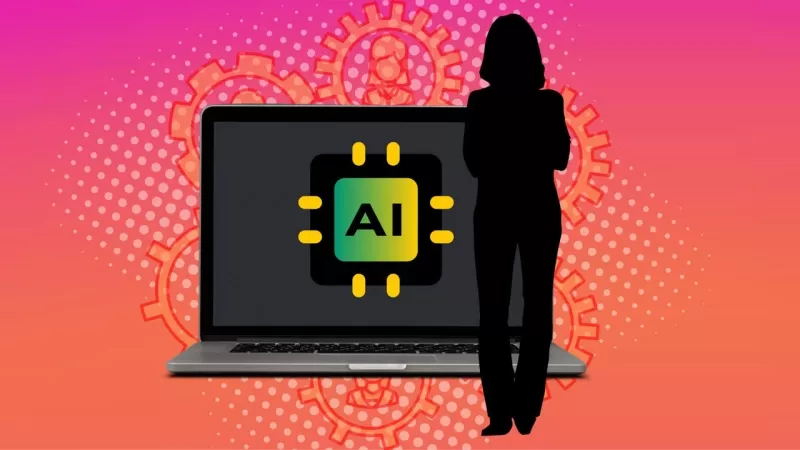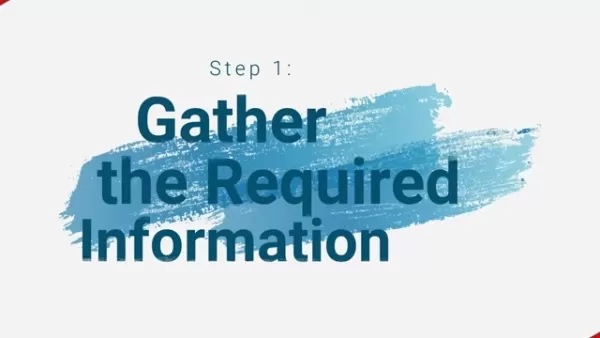AI Agents: The New Workforce Still Requiring Management

The buzz around AI agents as the new "digital workers" has been growing louder, a trend that predates the mainstream adoption of agentic and generative AI, particularly in areas like robotic process automation. These digital workers are engineered for discipline and obedience, yet they come with their own set of quirks, much like their human counterparts.
For a deeper dive into how AI has transformed my work life, check out my article on 15 ways AI saved me time at work in 2024 - and how I plan to use it in 2025.
Salesforce's Leap into Digital Labor with Agentforce 2.0
The shift towards a digital workforce has taken significant strides forward, with Salesforce recently launching Agentforce 2.0, a digital labor platform tailored for enterprises. This platform aims to create "a limitless workforce through AI agents for any department," utilizing a library of pre-built skills to operate across any system or workflow. According to Salesforce, Agentforce 2.0 goes beyond traditional RPA by incorporating "enhanced reasoning and data retrieval," enabling it to deliver precise answers and orchestrate actions in response to complex, multi-step queries. These agents are even capable of interacting within Slack, making them a seamless part of everyday work environments.
Augmenting Teams with Digital Labor
Major organizations are tapping into this platform to bolster their teams with digital labor, as Salesforce highlights. With talent being both scarce and costly to train, businesses are increasingly relying on AI to manage customer interactions and address workflow backlogs. However, they can no longer settle for "inadequate solutions that provide generic responses," as Salesforce points out. Traditional solutions like copilots often fall short in delivering accurate, trusted responses to complex requests, such as personalized job application guidance, and they lack the ability to act autonomously—like nurturing leads with product recommendations.
Industry leaders agree that autonomous digital workers are now capable of performing such tasks at various levels. "The convergence of skilled innovators, rapidly-deployable cloud tools, customer awareness, and executive support has created an ideal environment for agentic AI to thrive in 2025," Chris Bennett, director of AI transparency and education at Motorola Solutions, shared with ZDNET.
Motorola Solutions is already harnessing the power of agentic AI "to improve public safety and enterprise security," Bennett explains. Their AI applications analyze and surface real-time data, providing critical, immediate support to first responders and security personnel. "AI agents never get bored, tired, or distracted," he notes, pointing out that they can automate repetitive tasks, freeing up responders for more critical duties and community engagement. For example, AI agents can speed up tasks like reviewing historical video footage, helping investigators find missing persons more quickly through natural language searches.
Viswesh Ananthakrishnan, co-founder and vice president of Aurascape, describes how AI agents intuit processes to "create a series of steps, or a recipe to solve a problem." These agents can execute these steps and even collaborate with other agents, gaining a comprehensive view of how the enterprise functions. Ananthakrishnan further explains that AI agents can "develop and execute complex processes, like viewing demand forecasts and taking proactive action to generate and submit order forms for more inventory before supplies run low." This automation significantly reduces the time workers spend on repetitive tasks.
The Need for Thoughtful Management of AI Agents
However, just like human workers, AI agents require careful management. There's still work to be done before an agentic AI-driven workforce can fully take on a broad range of tasks. "While the promise of agentic AI is evident, we are several years away from widespread agentic AI adoption at the enterprise level," warns Scott Beechuk, partner with Norwest Venture Partners. He emphasizes the importance of trustworthiness, given the potential role of agents in automating mission-critical business processes.
One of the challenges is the traceability of AI agents' actions. "Many tools have a hard time explaining how they arrived at their responses from users' sensitive data, and models struggle to generalize beyond what they have learned," Ananthakrishnan points out.
Unpredictability is another hurdle, as large language models (LLMs) "operate like black boxes," Beechuk adds. "It's hard for users and engineers to know if the AI has successfully completed its task and if it did so correctly." He also cautions about the unreliability of AI agents, noting that "in systems where AI creates its own steps to complete tasks, made-up details can lead to more errors as the task progresses, ultimately making the outputs unreliable."
Human workers naturally collaborate with ease and regularity, but for AI workers, this is more complex. "Because agents will interact with multiple systems and data stores, achieving comprehensive visibility is no easy task," Ananthakrishnan explains. It's crucial to have visibility to capture each action an agent takes, which requires deep insight into activity on endpoint devices and the ability to process data in various formats. Additionally, it's important to "quickly combine this context from endpoints with network-level traffic to determine the data informing the agent's actions," as well as "recognize the type of AI agent interfacing with your data, whether it's a trusted entity, or a brand-new agent."
The Rise of the AI Systems Engineer
This complexity may give rise to a new human-centered role—the AI systems engineer. "This new quality assurance and oversight role will become essential to enterprises as they manage and continuously optimize AI agents," Beechuk states.
In multi-agent environments, "AI agents will be interacting and evolving constantly, consuming a steady diet of new data to perform their individual jobs," he explains. "When one of them gets bad data—intentionally or unintentionally—and changes its behavior, it can start performing its job incorrectly or with less precision, even if it was doing it perfectly well just one day before. An error in one agent can then have a cascading effect that degrades the whole system. Enterprises will hire as many AI systems engineers as it takes to keep that from happening."
While companies and tech teams may be "well-positioned to support agentic AI, we still need time and experience to strike the right balance between agentic and human workflows," advises Bennett. "Our advice is to view AI as an augmentation to human experts, not a replacement."
Related article
 Master Emerald Kaizo Nuzlocke: Ultimate Survival & Strategy Guide
Emerald Kaizo stands as one of the most formidable Pokémon ROM hacks ever conceived. While attempting a Nuzlocke run exponentially increases the challenge, victory remains achievable through meticulous planning and strategic execution. This definitiv
Master Emerald Kaizo Nuzlocke: Ultimate Survival & Strategy Guide
Emerald Kaizo stands as one of the most formidable Pokémon ROM hacks ever conceived. While attempting a Nuzlocke run exponentially increases the challenge, victory remains achievable through meticulous planning and strategic execution. This definitiv
 AI-Powered Cover Letters: Expert Guide for Journal Submissions
In today's competitive academic publishing environment, crafting an effective cover letter can make the crucial difference in your manuscript's acceptance. Discover how AI-powered tools like ChatGPT can streamline this essential task, helping you cre
AI-Powered Cover Letters: Expert Guide for Journal Submissions
In today's competitive academic publishing environment, crafting an effective cover letter can make the crucial difference in your manuscript's acceptance. Discover how AI-powered tools like ChatGPT can streamline this essential task, helping you cre
 US to Sanction Foreign Officials Over Social Media Regulations
US Takes Stand Against Global Digital Content Regulations
The State Department issued a sharp diplomatic rebuke this week targeting European digital governance policies, signaling escalating tensions over control of online platforms. Secretary Marco
Comments (9)
0/200
US to Sanction Foreign Officials Over Social Media Regulations
US Takes Stand Against Global Digital Content Regulations
The State Department issued a sharp diplomatic rebuke this week targeting European digital governance policies, signaling escalating tensions over control of online platforms. Secretary Marco
Comments (9)
0/200
![DennisAllen]() DennisAllen
DennisAllen
 August 12, 2025 at 9:00:59 PM EDT
August 12, 2025 at 9:00:59 PM EDT
AI agents as digital workers sound cool, but managing them feels like herding cats 🐱. The article got me thinking—will we need AI managers next?


 0
0
![RichardGonzález]() RichardGonzález
RichardGonzález
 August 12, 2025 at 11:00:59 AM EDT
August 12, 2025 at 11:00:59 AM EDT
AI agents as digital workers sound cool, but managing them seems like herding cats with code. Anyone else worried about these 'obedient' bots going rogue? 😅


 0
0
![JasonHarris]() JasonHarris
JasonHarris
 August 4, 2025 at 3:00:59 PM EDT
August 4, 2025 at 3:00:59 PM EDT
AI agents as digital workers sound cool, but I’m wondering how much oversight they really need. If they’re so disciplined, why the hassle of managing them? 🤔 Feels like trading one set of problems for another.


 0
0
![EricMartinez]() EricMartinez
EricMartinez
 August 4, 2025 at 4:40:05 AM EDT
August 4, 2025 at 4:40:05 AM EDT
AI agents as digital workers sound cool, but managing them feels like herding cats 🐱. The article nails it—discipline is key, but their quirks still need babysitting!


 0
0
![BillyWilson]() BillyWilson
BillyWilson
 April 18, 2025 at 6:23:27 PM EDT
April 18, 2025 at 6:23:27 PM EDT
AI 에이전트는 정말 편리하지만 관리하기가 쉽지 않아요! 충실하게 일하지만 가끔 기대와 다른 결과를 내기도 해요. 그래도 업무 자동화에는 혁신적이에요. 좀 더 직관적이면 좋겠어요. 🤖💼


 0
0
![SamuelRoberts]() SamuelRoberts
SamuelRoberts
 April 18, 2025 at 3:56:44 AM EDT
April 18, 2025 at 3:56:44 AM EDT
Os agentes de IA são legais, mas gerenciá-los é como tentar organizar gatos! Eles são disciplinados, mas às vezes erram o alvo. Ainda assim, são uma revolução na automação de tarefas. Só desejo que fossem um pouco mais intuitivos, sabe? 🤖💼


 0
0

The buzz around AI agents as the new "digital workers" has been growing louder, a trend that predates the mainstream adoption of agentic and generative AI, particularly in areas like robotic process automation. These digital workers are engineered for discipline and obedience, yet they come with their own set of quirks, much like their human counterparts.
For a deeper dive into how AI has transformed my work life, check out my article on 15 ways AI saved me time at work in 2024 - and how I plan to use it in 2025.
Salesforce's Leap into Digital Labor with Agentforce 2.0
The shift towards a digital workforce has taken significant strides forward, with Salesforce recently launching Agentforce 2.0, a digital labor platform tailored for enterprises. This platform aims to create "a limitless workforce through AI agents for any department," utilizing a library of pre-built skills to operate across any system or workflow. According to Salesforce, Agentforce 2.0 goes beyond traditional RPA by incorporating "enhanced reasoning and data retrieval," enabling it to deliver precise answers and orchestrate actions in response to complex, multi-step queries. These agents are even capable of interacting within Slack, making them a seamless part of everyday work environments.
Augmenting Teams with Digital Labor
Major organizations are tapping into this platform to bolster their teams with digital labor, as Salesforce highlights. With talent being both scarce and costly to train, businesses are increasingly relying on AI to manage customer interactions and address workflow backlogs. However, they can no longer settle for "inadequate solutions that provide generic responses," as Salesforce points out. Traditional solutions like copilots often fall short in delivering accurate, trusted responses to complex requests, such as personalized job application guidance, and they lack the ability to act autonomously—like nurturing leads with product recommendations.
Industry leaders agree that autonomous digital workers are now capable of performing such tasks at various levels. "The convergence of skilled innovators, rapidly-deployable cloud tools, customer awareness, and executive support has created an ideal environment for agentic AI to thrive in 2025," Chris Bennett, director of AI transparency and education at Motorola Solutions, shared with ZDNET.
Motorola Solutions is already harnessing the power of agentic AI "to improve public safety and enterprise security," Bennett explains. Their AI applications analyze and surface real-time data, providing critical, immediate support to first responders and security personnel. "AI agents never get bored, tired, or distracted," he notes, pointing out that they can automate repetitive tasks, freeing up responders for more critical duties and community engagement. For example, AI agents can speed up tasks like reviewing historical video footage, helping investigators find missing persons more quickly through natural language searches.
Viswesh Ananthakrishnan, co-founder and vice president of Aurascape, describes how AI agents intuit processes to "create a series of steps, or a recipe to solve a problem." These agents can execute these steps and even collaborate with other agents, gaining a comprehensive view of how the enterprise functions. Ananthakrishnan further explains that AI agents can "develop and execute complex processes, like viewing demand forecasts and taking proactive action to generate and submit order forms for more inventory before supplies run low." This automation significantly reduces the time workers spend on repetitive tasks.
The Need for Thoughtful Management of AI Agents
However, just like human workers, AI agents require careful management. There's still work to be done before an agentic AI-driven workforce can fully take on a broad range of tasks. "While the promise of agentic AI is evident, we are several years away from widespread agentic AI adoption at the enterprise level," warns Scott Beechuk, partner with Norwest Venture Partners. He emphasizes the importance of trustworthiness, given the potential role of agents in automating mission-critical business processes.
One of the challenges is the traceability of AI agents' actions. "Many tools have a hard time explaining how they arrived at their responses from users' sensitive data, and models struggle to generalize beyond what they have learned," Ananthakrishnan points out.
Unpredictability is another hurdle, as large language models (LLMs) "operate like black boxes," Beechuk adds. "It's hard for users and engineers to know if the AI has successfully completed its task and if it did so correctly." He also cautions about the unreliability of AI agents, noting that "in systems where AI creates its own steps to complete tasks, made-up details can lead to more errors as the task progresses, ultimately making the outputs unreliable."
Human workers naturally collaborate with ease and regularity, but for AI workers, this is more complex. "Because agents will interact with multiple systems and data stores, achieving comprehensive visibility is no easy task," Ananthakrishnan explains. It's crucial to have visibility to capture each action an agent takes, which requires deep insight into activity on endpoint devices and the ability to process data in various formats. Additionally, it's important to "quickly combine this context from endpoints with network-level traffic to determine the data informing the agent's actions," as well as "recognize the type of AI agent interfacing with your data, whether it's a trusted entity, or a brand-new agent."
The Rise of the AI Systems Engineer
This complexity may give rise to a new human-centered role—the AI systems engineer. "This new quality assurance and oversight role will become essential to enterprises as they manage and continuously optimize AI agents," Beechuk states.
In multi-agent environments, "AI agents will be interacting and evolving constantly, consuming a steady diet of new data to perform their individual jobs," he explains. "When one of them gets bad data—intentionally or unintentionally—and changes its behavior, it can start performing its job incorrectly or with less precision, even if it was doing it perfectly well just one day before. An error in one agent can then have a cascading effect that degrades the whole system. Enterprises will hire as many AI systems engineers as it takes to keep that from happening."
While companies and tech teams may be "well-positioned to support agentic AI, we still need time and experience to strike the right balance between agentic and human workflows," advises Bennett. "Our advice is to view AI as an augmentation to human experts, not a replacement."
 Master Emerald Kaizo Nuzlocke: Ultimate Survival & Strategy Guide
Emerald Kaizo stands as one of the most formidable Pokémon ROM hacks ever conceived. While attempting a Nuzlocke run exponentially increases the challenge, victory remains achievable through meticulous planning and strategic execution. This definitiv
Master Emerald Kaizo Nuzlocke: Ultimate Survival & Strategy Guide
Emerald Kaizo stands as one of the most formidable Pokémon ROM hacks ever conceived. While attempting a Nuzlocke run exponentially increases the challenge, victory remains achievable through meticulous planning and strategic execution. This definitiv
 AI-Powered Cover Letters: Expert Guide for Journal Submissions
In today's competitive academic publishing environment, crafting an effective cover letter can make the crucial difference in your manuscript's acceptance. Discover how AI-powered tools like ChatGPT can streamline this essential task, helping you cre
AI-Powered Cover Letters: Expert Guide for Journal Submissions
In today's competitive academic publishing environment, crafting an effective cover letter can make the crucial difference in your manuscript's acceptance. Discover how AI-powered tools like ChatGPT can streamline this essential task, helping you cre
 US to Sanction Foreign Officials Over Social Media Regulations
US Takes Stand Against Global Digital Content Regulations
The State Department issued a sharp diplomatic rebuke this week targeting European digital governance policies, signaling escalating tensions over control of online platforms. Secretary Marco
US to Sanction Foreign Officials Over Social Media Regulations
US Takes Stand Against Global Digital Content Regulations
The State Department issued a sharp diplomatic rebuke this week targeting European digital governance policies, signaling escalating tensions over control of online platforms. Secretary Marco
 August 12, 2025 at 9:00:59 PM EDT
August 12, 2025 at 9:00:59 PM EDT
AI agents as digital workers sound cool, but managing them feels like herding cats 🐱. The article got me thinking—will we need AI managers next?


 0
0
 August 12, 2025 at 11:00:59 AM EDT
August 12, 2025 at 11:00:59 AM EDT
AI agents as digital workers sound cool, but managing them seems like herding cats with code. Anyone else worried about these 'obedient' bots going rogue? 😅


 0
0
 August 4, 2025 at 3:00:59 PM EDT
August 4, 2025 at 3:00:59 PM EDT
AI agents as digital workers sound cool, but I’m wondering how much oversight they really need. If they’re so disciplined, why the hassle of managing them? 🤔 Feels like trading one set of problems for another.


 0
0
 August 4, 2025 at 4:40:05 AM EDT
August 4, 2025 at 4:40:05 AM EDT
AI agents as digital workers sound cool, but managing them feels like herding cats 🐱. The article nails it—discipline is key, but their quirks still need babysitting!


 0
0
 April 18, 2025 at 6:23:27 PM EDT
April 18, 2025 at 6:23:27 PM EDT
AI 에이전트는 정말 편리하지만 관리하기가 쉽지 않아요! 충실하게 일하지만 가끔 기대와 다른 결과를 내기도 해요. 그래도 업무 자동화에는 혁신적이에요. 좀 더 직관적이면 좋겠어요. 🤖💼


 0
0
 April 18, 2025 at 3:56:44 AM EDT
April 18, 2025 at 3:56:44 AM EDT
Os agentes de IA são legais, mas gerenciá-los é como tentar organizar gatos! Eles são disciplinados, mas às vezes erram o alvo. Ainda assim, são uma revolução na automação de tarefas. Só desejo que fossem um pouco mais intuitivos, sabe? 🤖💼


 0
0





























